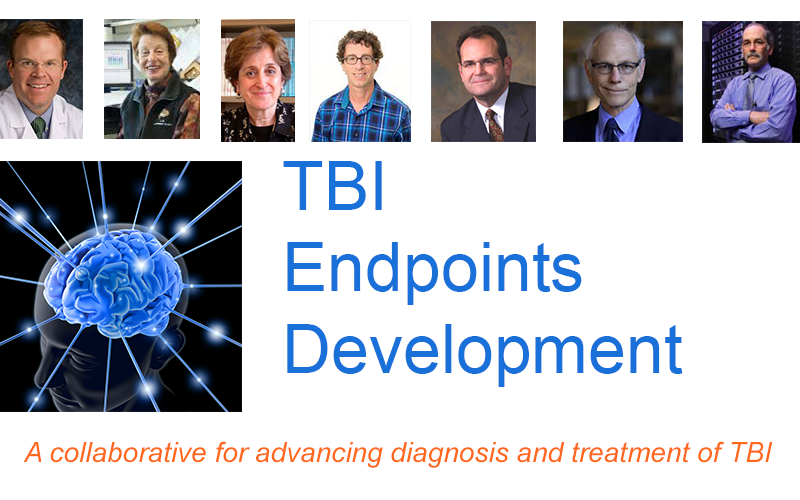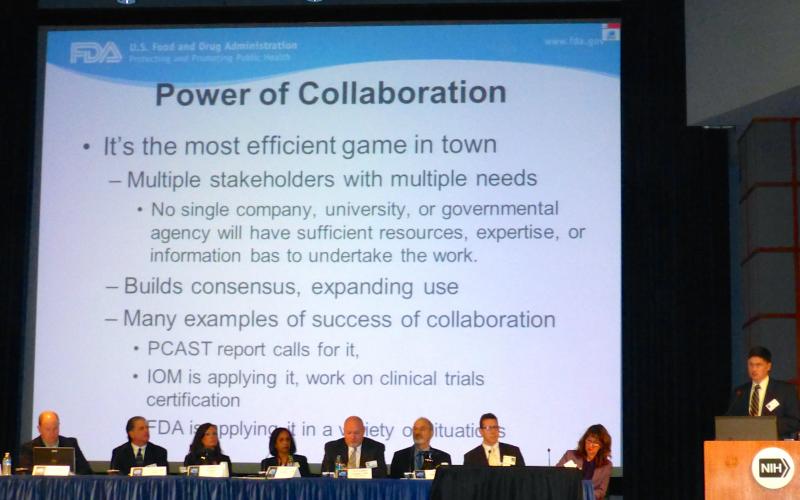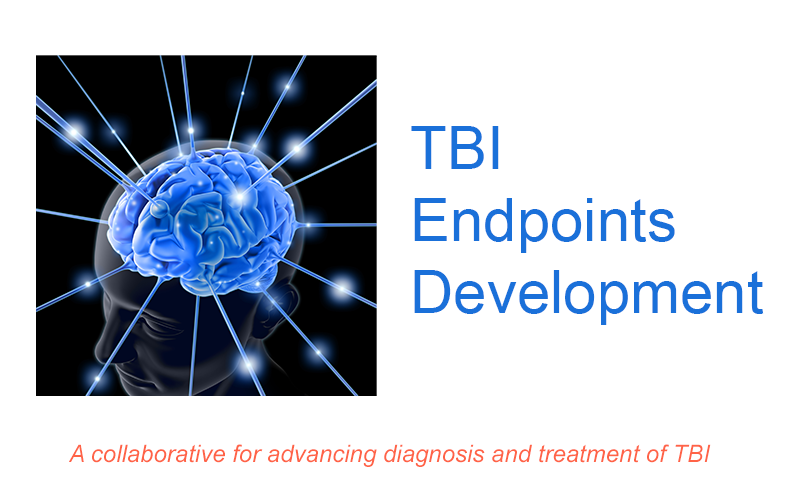Traumatic Brain Injury (TBI) is a complex, and often chronic condition, not a one-time event. Each year more than 2.5 million people in the United States seek medical care for TBIs. According to the U.S. Centers for Disease Control and Prevention an estimated 2% of the U.S. population now lives with TBI-caused disabilities, at an annual cost of about $77 billion. The U.S. Department of Defense estimates that 361,092 brain injuries have been sustained by members of the U.S. military, worldwide, since 2000. As of 2015, no drug or device has been approved by the U.S. Food and Drug Administration (FDA) to treat acute TBI, and decades of well-designed clinical trials have failed. In large part, this disappointing progress stems from our inability to precisely diagnose this multi-factorial condition and thus, accurately stratify patients into trials that test drugs and devices relevant to their phenotypic injury.
Better designed clinical trials leading to the first successful treatments for traumatic brain injury are the goals of TBI Endpoints Development (TED) Initiative. Awarded in 2014, the TED Initiative is supported by a $17 million, five-year grant from the Department of Defense (DoD). Funded as a direct collaboration with FDA, the TED team consists of leading academic clinician-scientists, along with innovative industry leaders in biotechnology and imaging technology, patient advocacy organizations, and philanthropies. This unique public-private partnership will examine data from thousands of athletes, soldiers, and the broader civilian population to identify and validate effective measures or “endpoints” of brain injury and recovery.
READ MORE
The TED Initiative has completed multiple objectives as part of Stage I of the grant. The TED Metadataset has been created, which now contains granular data on over 6,000 mild-moderate and severe TBI study participants across eight individual studies conducted at different study sites. The constituent studies include TRACK-TBI, TRACK-TBI Pilot, COBRIT, TBICare, Concussion Research Consortium, ProTECT III, Mission Connect, and an NIH-funded neuroimaging study led by TED Investigator Dr. Pratik Mukherjee. This highly detailed and multi-scalar repository is continuously curated and analyzed using conventional and novel methodologies. We aim to identify and validate meaningful TBI endpoints, as well as structural abnormalities that may be predictive of outcomes, making strides toward a new taxonomy for TBI.
TED Investigators have also embarked on a multi-pronged approach in Stage I to engage multiple divisions of the U.S. Food and Drug Administration (FDA). In 2017, the Initiative secured an FDA Letter of Recognition of Research Importance regarding TBI from the Center for Devices & Radiologic Health, as well as a Letter of Support from the FDA’s Center for Drug Evaluation and Research to further explore neuroimaging biomarkers. The Letter of Support, signed by Dr. Janet Woodcock, Director of FDA’s Center for Drug Evaluation and Research explicitly calls for further exploration of neuroimaging prognostic biomarkers to identify patients who are likely to develop persistent disability during the course of mild traumatic brain injury clinical trials. Additionally, the TED Neuroimaging Expert Working Group has seen their Medical Device Development Tool proposal reach the Qualification Stage with FDA’s Center for Devices & Radiological Health.
TED Investigators are continuing the grant’s Stage II objectives. Primary among these was to solicit, select, and fund four Seed Projects. These Seed Projects funded innovative proposals focused on clinical outcome assessments, and biofluid and neuroimaging biomarkers.
The TED Friend Control Study is another Stage II objective currently underway. Leveraging the existing infrastructure of the TRACK-TBI study, friends of currently enrolled TRACK-TBI patients are being recruited to participate in the study’s year-long protocol Creation of a friend control cohort will address the dearth of control datasets in TBI research.





